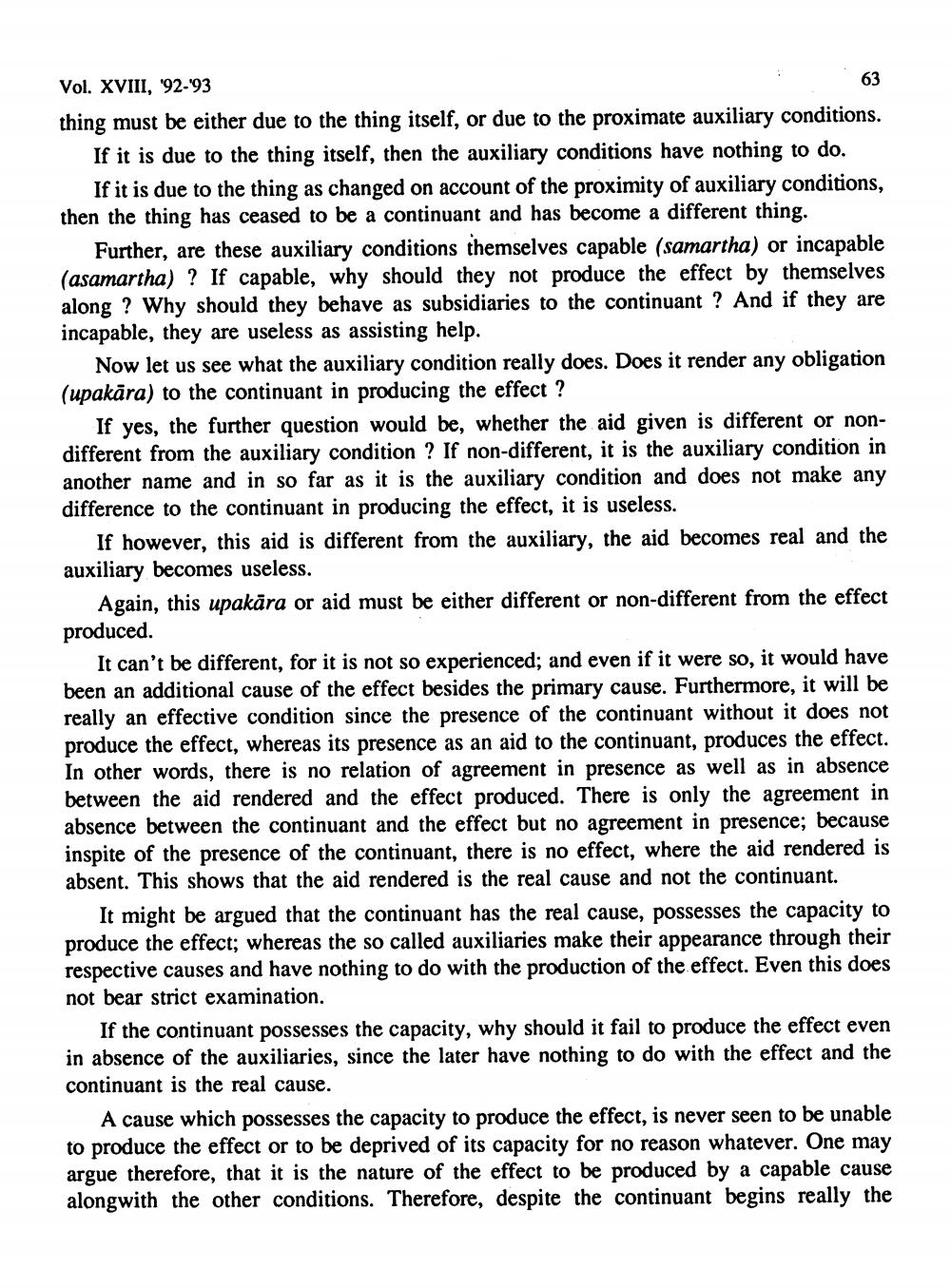________________
Vol. XVIII, '92-93
63 thing must be either due to the thing itself, or due to the proximate auxiliary conditions.
If it is due to the thing itself, then the auxiliary conditions have nothing to do.
If it is due to the thing as changed on account of the proximity of auxiliary conditions, then the thing has ceased to be a continuant and has become a different thing.
Further, are these auxiliary conditions themselves capable (samartha) or incapable (asamartha) ? If capable, why should they not produce the effect by themselves along ? Why should they behave as subsidiaries to the continuant ? And if they are incapable, they are useless as assisting help.
Now let us see what the auxiliary condition really does. Does it render any obligation (upakāra) to the continuant in producing the effect ?
If yes, the further question would be, whether the aid given is different or nondifferent from the auxiliary condition ? If non-different, it is the auxiliary condition in another name and in so far as it is the auxiliary condition and does not make any difference to the continuant in producing the effect, it is useless.
If however, this aid is different from the auxiliary, the aid becomes real and the auxiliary becomes useless.
Again, this upakāra or aid must be either different or non-different from the effect produced
It can't be different, for it is not so experienced; and even if it were so, it would have been an additional cause of the effect besides the primary cause. Furthermore, it will be really an effective condition since the presence of the continuant without it does not produce the effect, whereas its presence as an aid to the continuant, produces the effect. In other words, there is no relation of agreement in presence as well as in absence between the aid rendered and the effect produced. There is only the agreement in absence between the continuant and the effect but no agreement in presence; because inspite of the presence of the continuant, there is no effect, where the aid rendered is absent. This shows that the aid rendered is the real cause and not the continuant.
It might be argued that the continuant has the real cause, possesses the capacity to produce the effect; whereas the so called auxiliaries make their appearance through their respective causes and have nothing to do with the production of the effect. Even this does not bear strict examination.
If the continuant possesses the capacity, why should it fail to produce the effect even in absence of the auxiliaries, since the later have nothing to do with the effect and the continuant is the real cause.
A cause which possesses the capacity to produce the effect, is never seen to be unable to produce the effect or to be deprived of its capacity for no reason whatever. One may argue therefore, that it is the nature of the effect to be produced by a capable cause alongwith the other conditions. Therefore, despite the continuant begins really the




